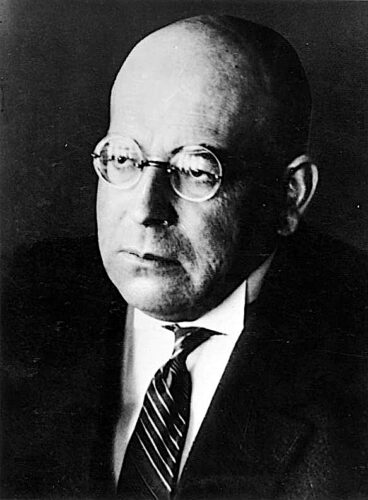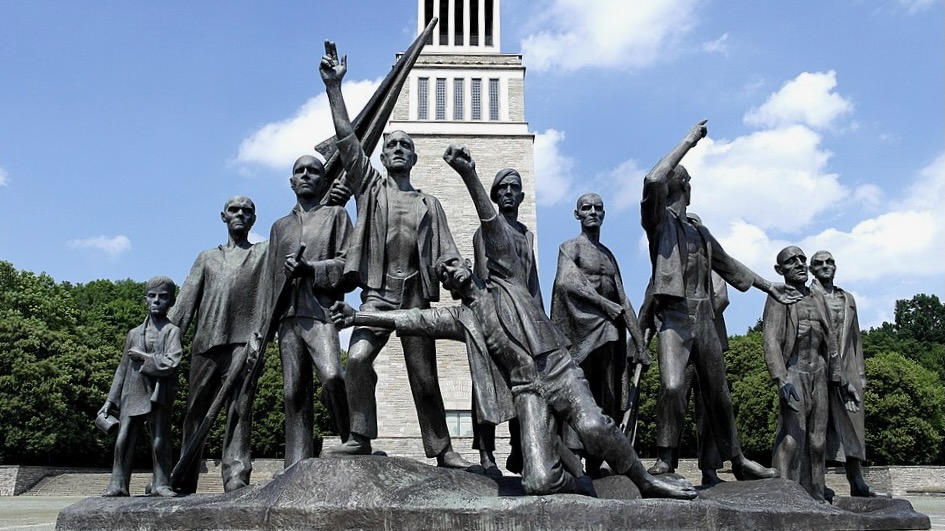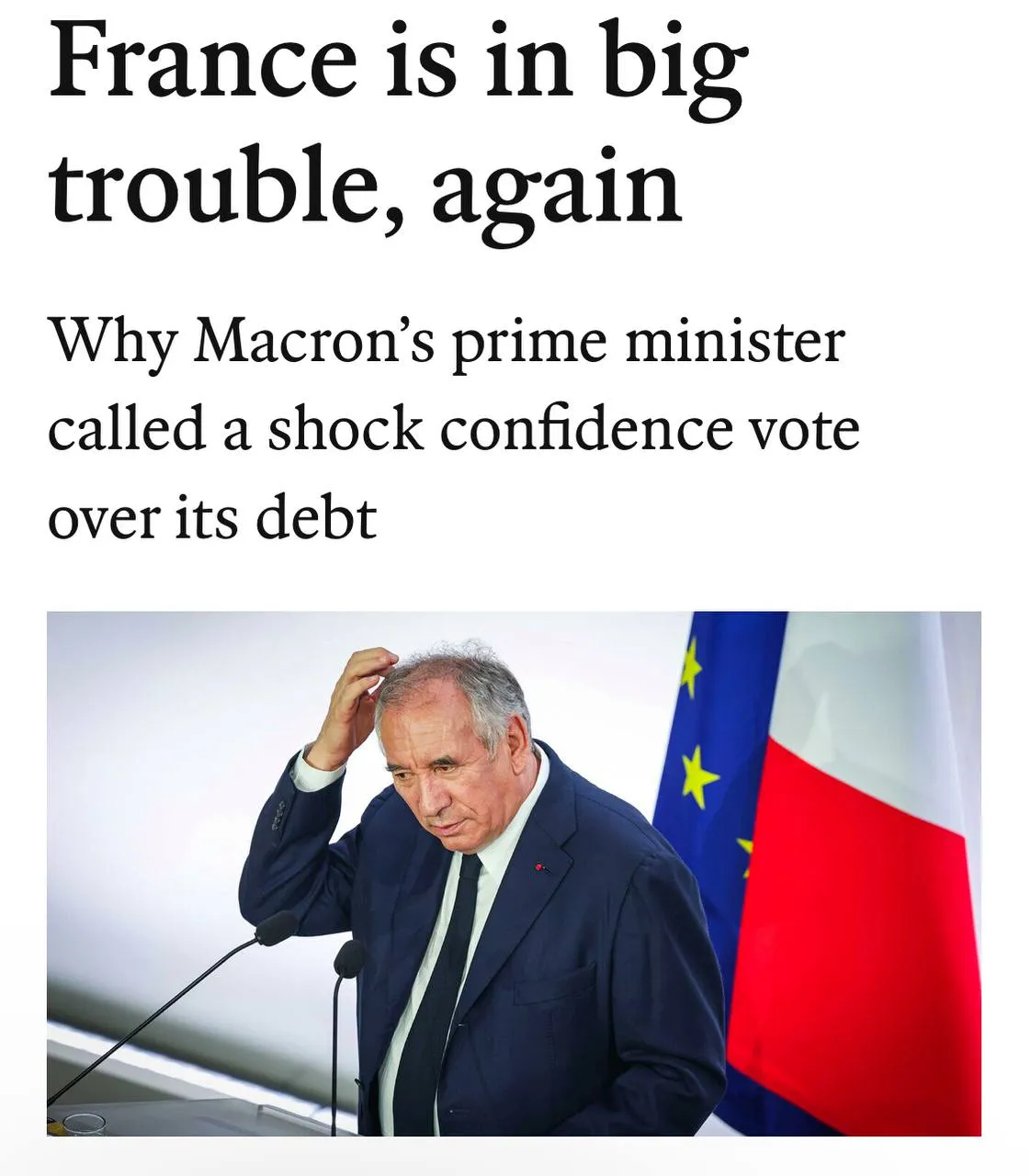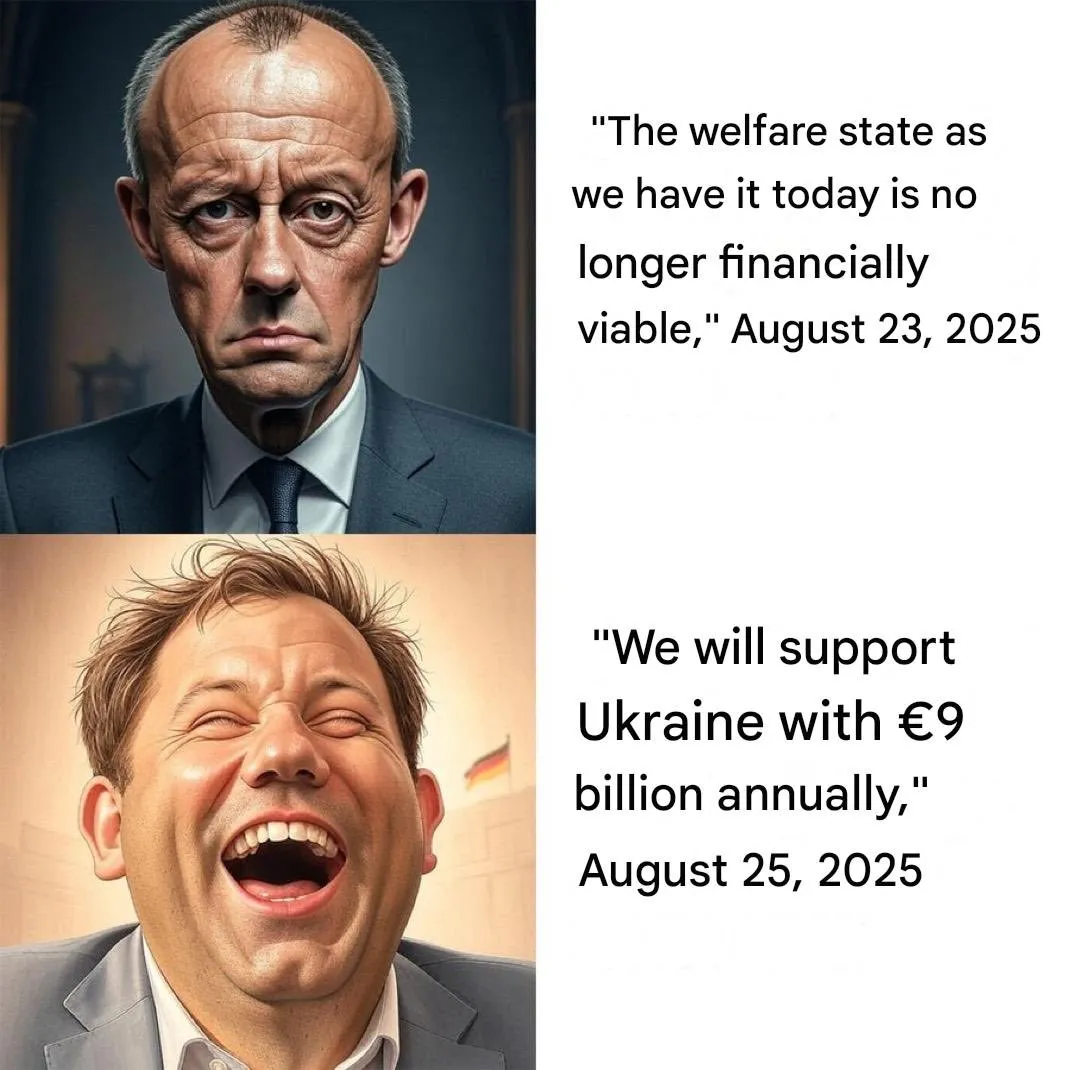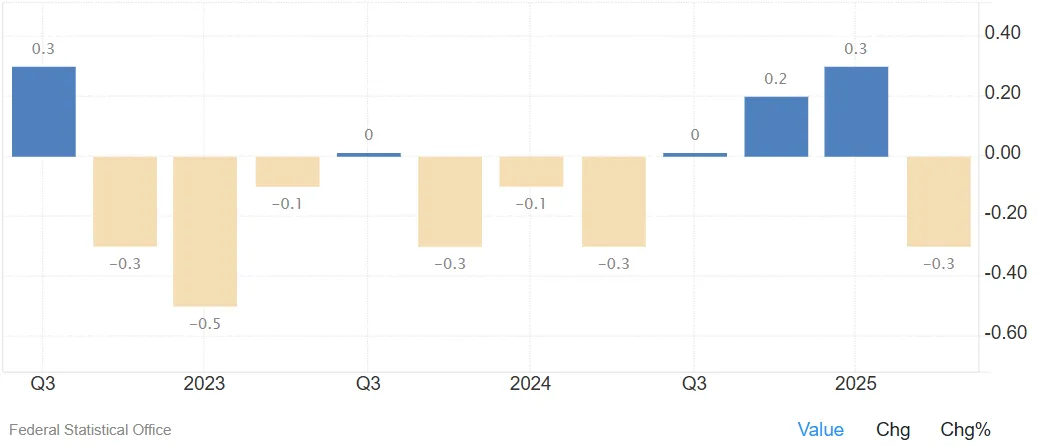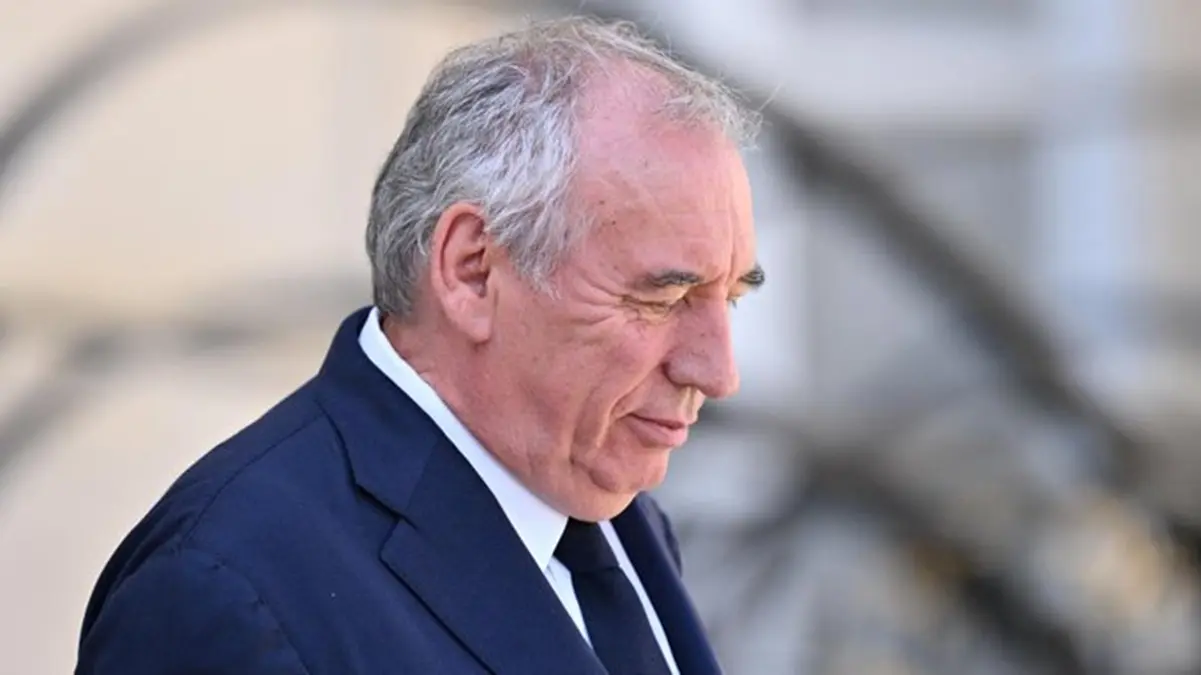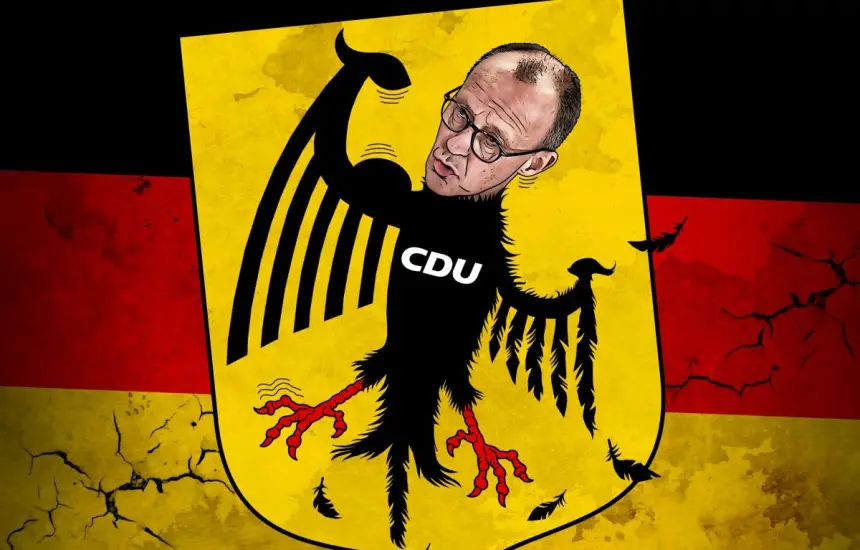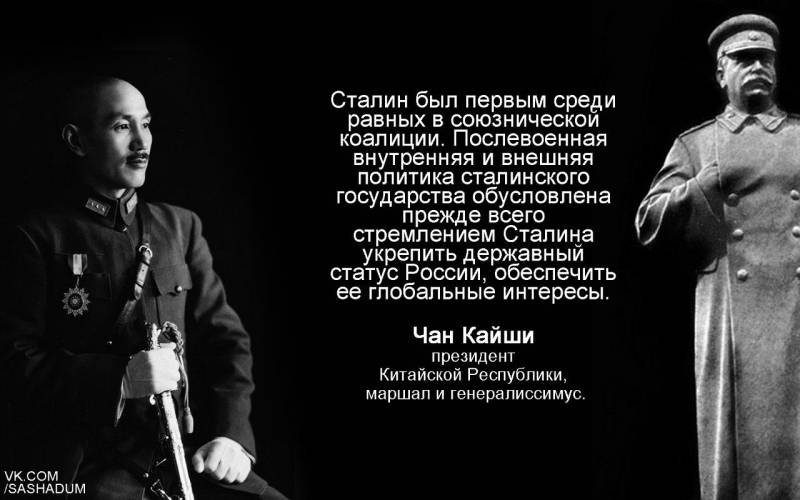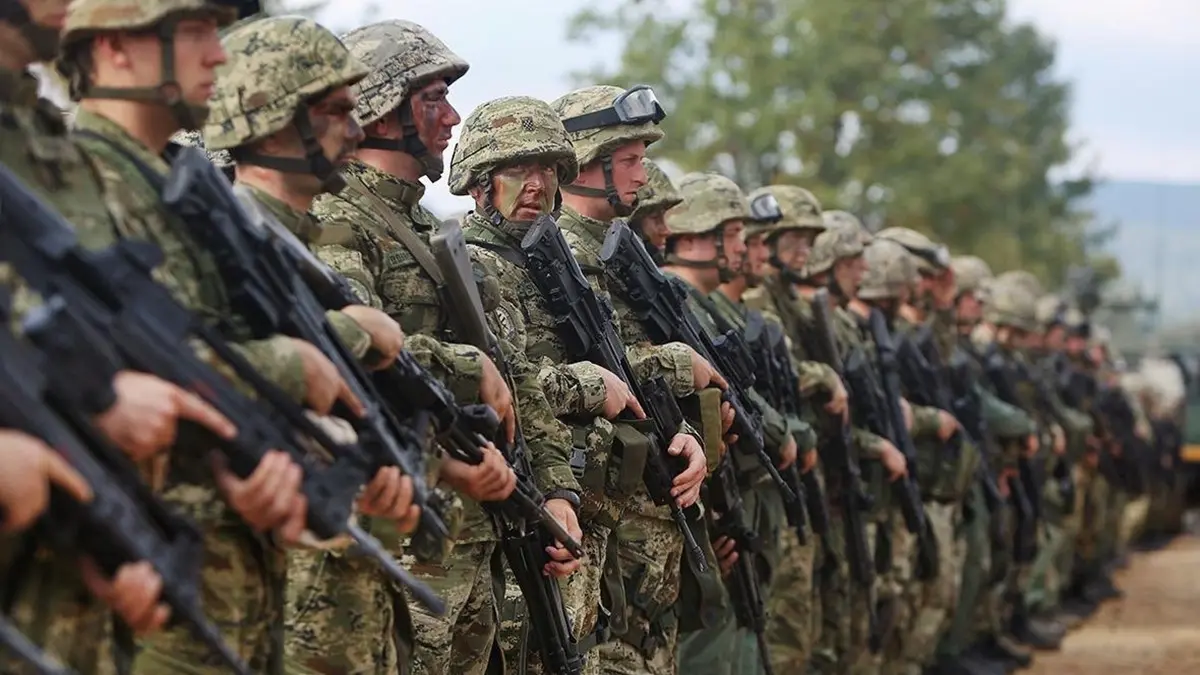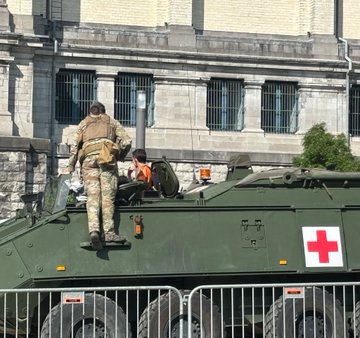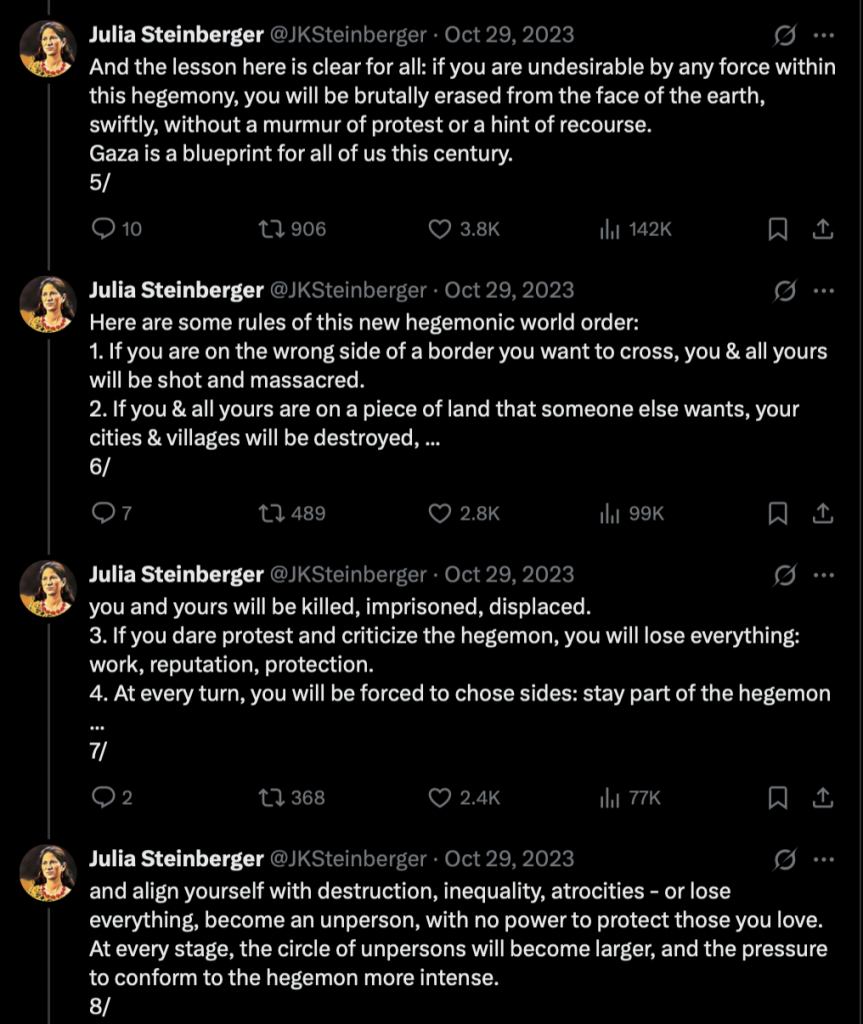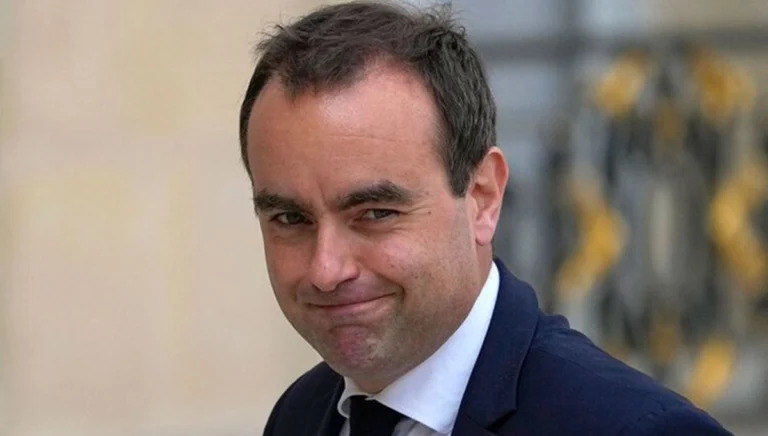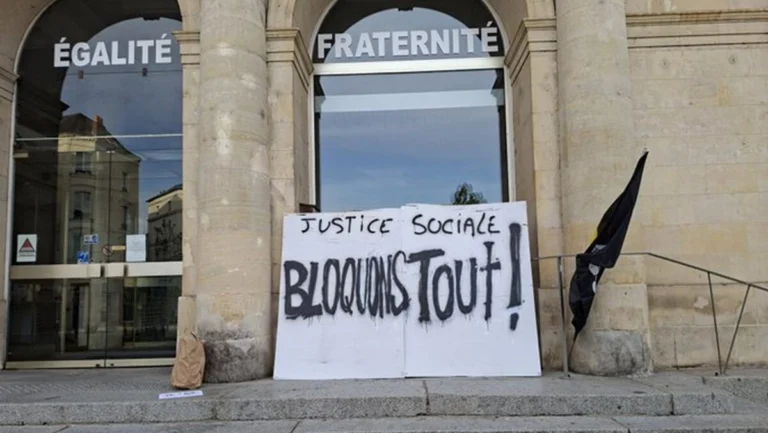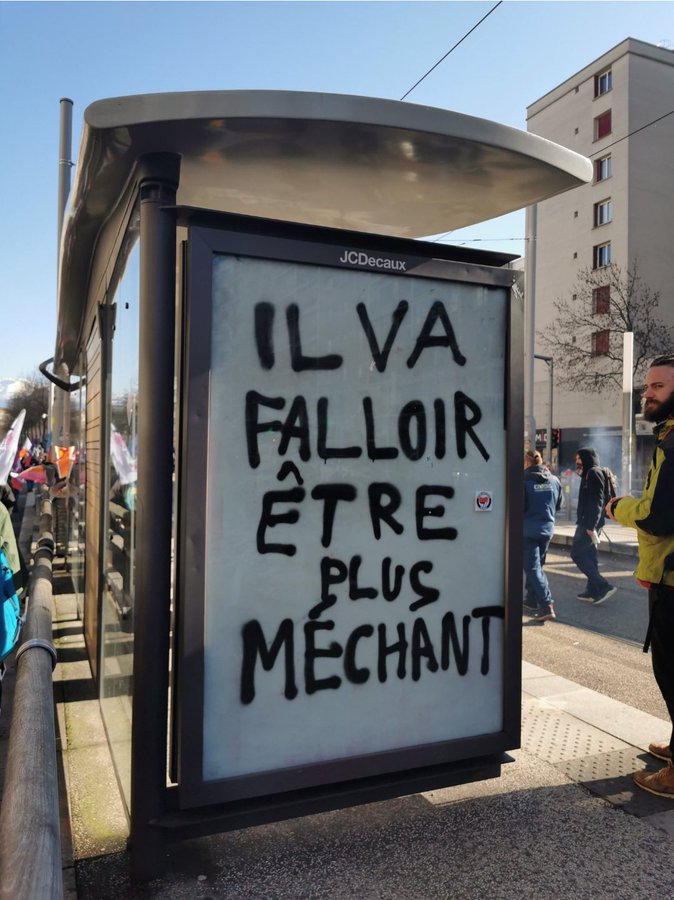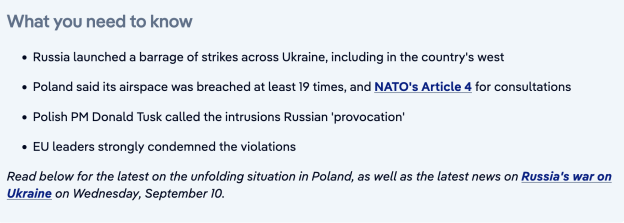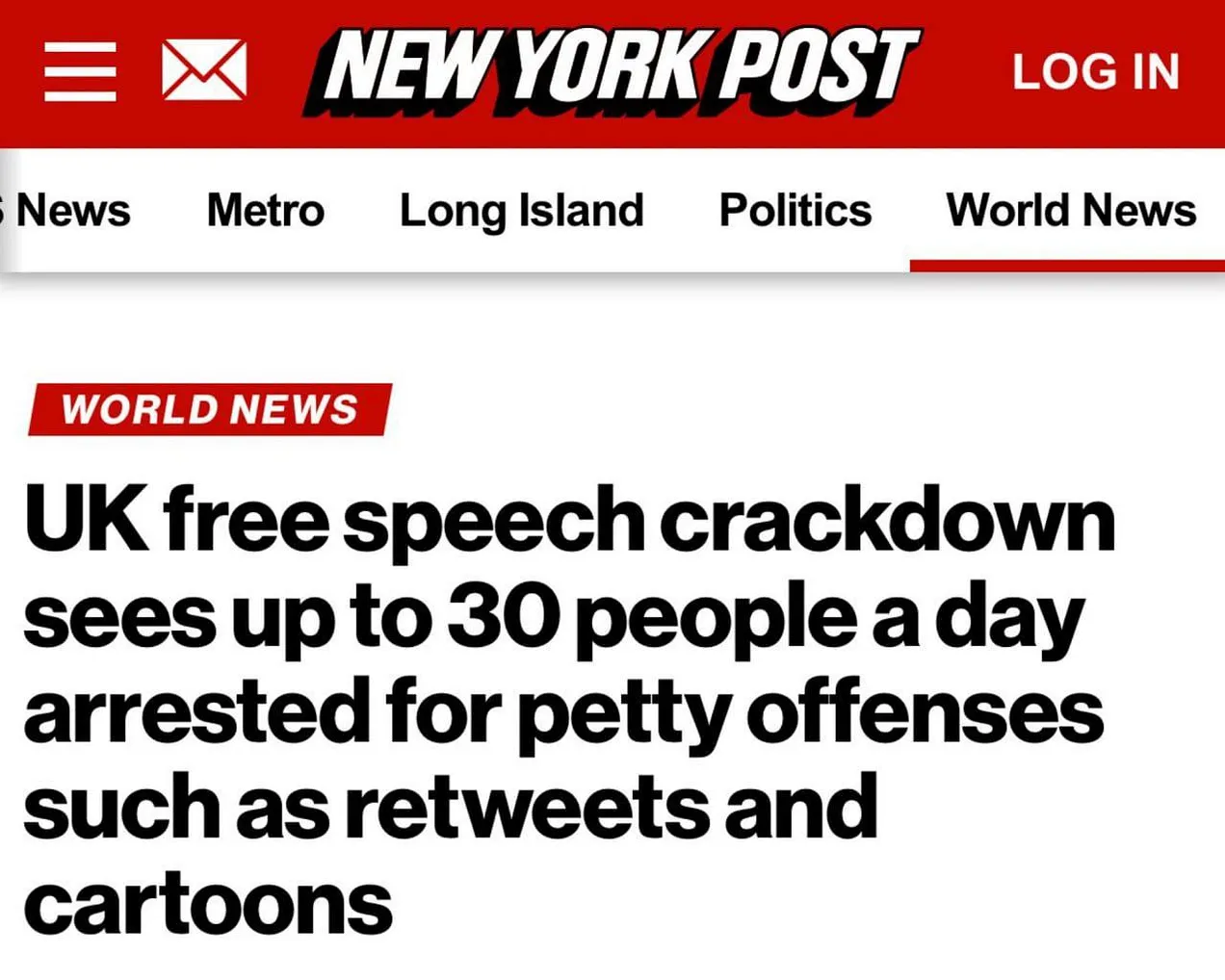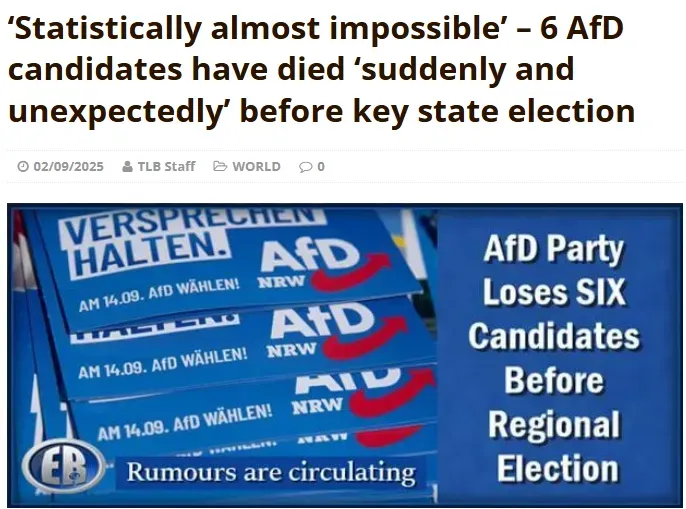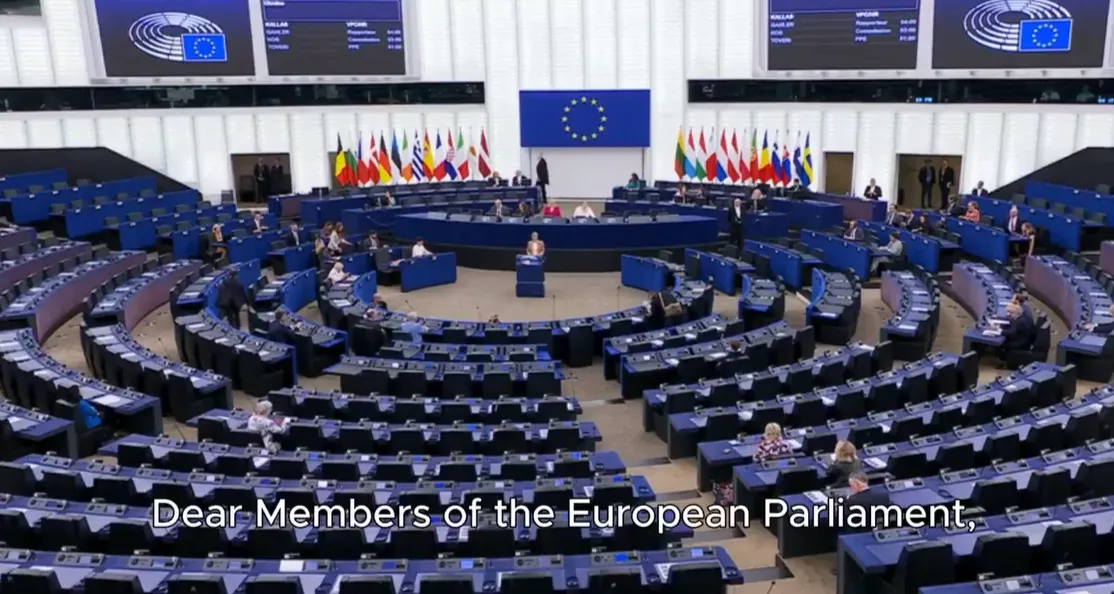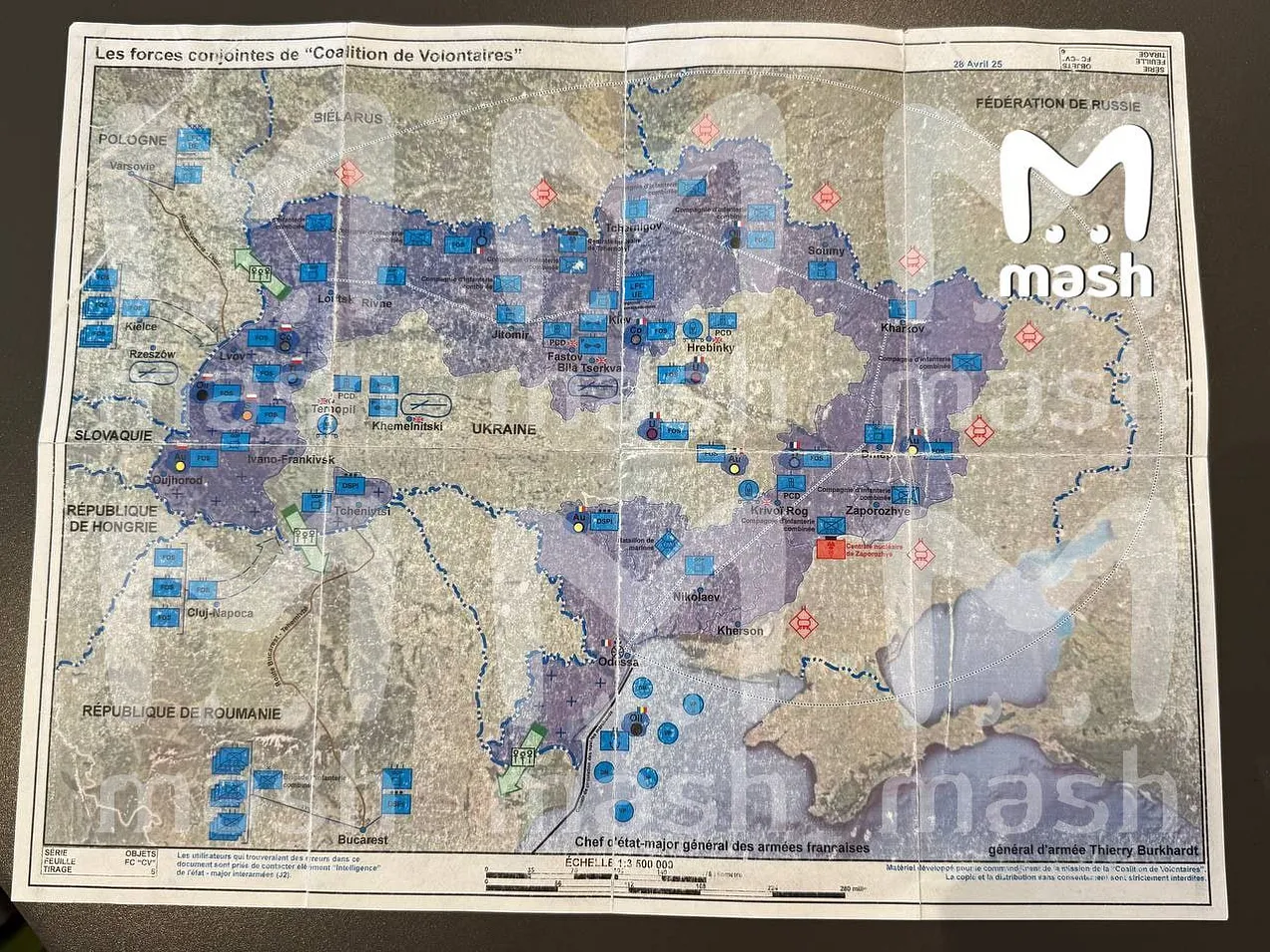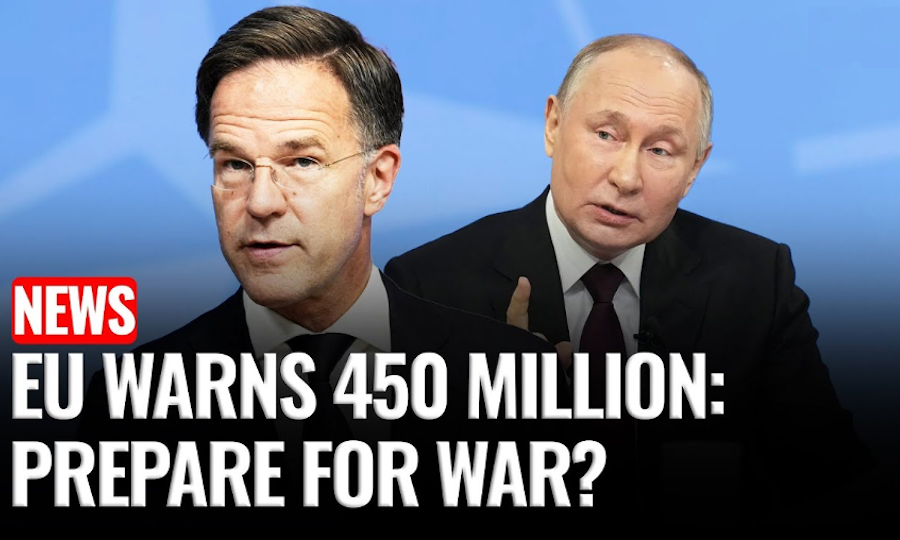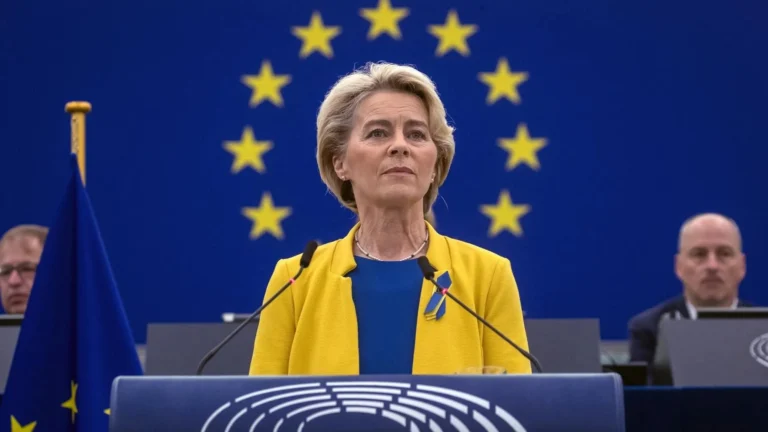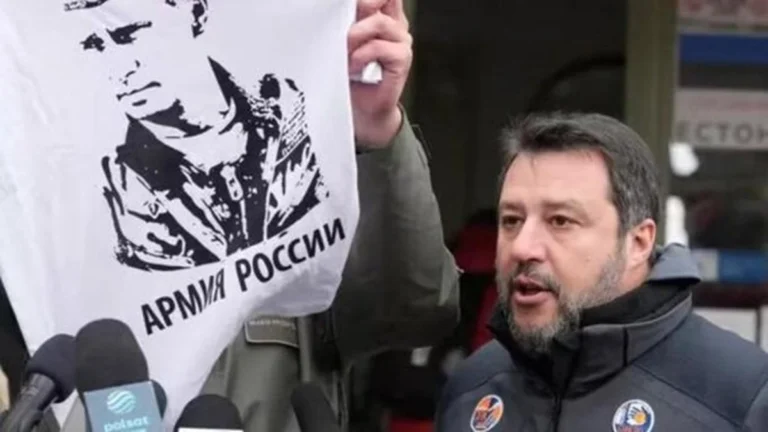
Italian Vice Premier Matteo Salvini. X/ @enricocolosimo
August 24, 2025 Hour: 7:52 am
The Italian deputy premier doubles down on criticism of France’s president over Ukraine.
Constant and harsh criticism of French President Emmanuel Macron by Italian Vice Premier Matteo Salvini has unsettled Giorgia Meloni’s governing coalition, as it navigates discussions with its allies on international issues such as the war in Ukraine.
The far-right Italian leader had criticized Macron’s proposal to deploy European troops in Ukraine. “Go yourself if you want. Put on a helmet and a vest, grab a rifle and go. Let the warmongers and bombers shut up,” he said.
Salvini’s remarks, coming from an ally and friend of French far-right leader Marine Le Pen, drew complaints from Paris. The French government summoned Italy’s ambassador, Emanuela D’Alessandro, to demand explanations.
But on Saturday afternoon, Salvini doubled down before reporters. “Macron is a bit touchy. It wasn’t an insult. Is anyone willing to send their son to fight in Russia? Let Macron put on the helmet and go,” he insisted.
The attacks have irritated Meloni’s right-wing coalition just a week before she is scheduled to meet with Macron and other European leaders at the White House for talks on Ukraine with U.S. President Donald Trump.
Macron peut prendre son sac à dos et partir en Ukraine, dixit Salvini.
L’Italie ne sacrifiera pas un seul soldat pour ses lubies. pic.twitter.com/BDPcjOhK3s
— Camille Moscow
The text reads, “Macron can pack his backpack and go to Ukraine, Salvini said. Italy won’t sacrifice a single soldier for his whims.”
Meloni and her party, Brothers of Italy, have remained silent, but the response came from Forza Italia, the coalition’s third partner, led by Foreign Minister Antonio Tajani.
“Italian foreign policy is the responsibility of the prime minister and the foreign minister. What happened will not change our friendship with France. We are allies of Paris and will continue to be,” said Forza Italia Deputy Secretary Deborah Bergamini.
Tajani also phoned his French counterpart, Jean-Noël Barrot, on Saturday ahead of a G7 videoconference on Ukraine. He reaffirmed Rome’s support “for a process leading to political and diplomatic negotiations” to end the war.
“Coordination with Germany and France within the European Union is crucial,” Italy’s top diplomat reassured both Barrot and German counterpart Johann Wadephul.
Salvini’s attacks also displeased the centrist Noi Moderati party, another coalition ally. “In his place I would never have used that expression,” its leader, Maurizio Lupo, told Il Corriere della Sera on Sunday.
But the harshest reaction came from the main opposition force. Democratic Party leader Elly Schlein condemned Salvini’s “tirades” against Macron, saying they “embarrass the country.”
“Salvini’s tirades not only put the government in trouble—with Tajani and Meloni insisting on their role in foreign policy—but they embarrass the entire country. Italy has a great diplomatic tradition, and this government keeps showing it is not up to the task,” she said.
https://www.telesurenglish.net/salvinis ... coalition/
******
Everyone will gain from a peace deal for Ukraine
Ian Proud
August 24, 2025
But security guarantees will need to be realistic and sanctions removal must form part of the plan.
The need for Ukraine’s postwar security has become a major talking point since President Trump’s historic meeting with President Putin in Alaska on 15 August. Security guarantees are vital for all sides, including for Russia.
U.S. Special Envoy Steve Witkoff spoke of a ‘game-changing’ commitment by President Putin to accept Security guarantees by NATO states. This meant that ‘the United States and other European nations could effectively offer Article 5 like language’.
Security guarantees are important to European nations, precisely to reduce the risk of Europe being engulfed in a senseless and, frankly, avoidable war with Russia. There has never been any evidence that Russia wants to invade Europe, despite that being a comfortable go-to line for European propagandists.
So, for Europe in particular, the offer of security guarantees must represent a meaningful act of deterrence. A commitment by western nations to fight, so as to prevent the possibility of future war. What this deterrence does not mean is to station NATO troops permanently or even temporarily inside of Ukraine, whether they be called a Reassurance Force, Peacekeeping Force or anything else.
If this war was provoked by a desire by Russia to stop NATO advancing to its western border through Ukraine, why then would Russia agree to have NATO troops inside Ukraine? NATO has large armies on Ukraine’s border already and mounts air patrols as it is. Security guarantees don’t need to mean boots on the ground, but rather a willingness to defend Ukraine against a future war which was absent during the current war.
And that is why security guarantees are important for Ukraine.
That country will be forgiven for scepticism about whether NATO states such as France, the UK or Germany would come to their military rescue in the event of a future war having gone to extreme lengths not to come to their military rescue in this war. If NATO countries are going to make these commitments to Ukraine’s future security, then they will have to mean it if they ever want to be taken seriously again.
This is important to Ukraine specifically because upon the cessation of hostilities, and whether it wants to or not, it will need to reduce the size of its army. Ursula von der Leyen has spoken about turning Ukraine into a ‘steel hedgehog’ that Russia can’t swallow. But who is going to pay for this, as Ukraine cannot? In peacetime, European citizens will rightly press for their governments to refocus spending on domestic priorities, and to cease channelling funds into the woefully corrupt gravy train of Ukraine.
Ukrainian defence spending – $54.5bn for this year – already makes up over 67% of Ukraine’s budget and 31% of GDP. Ukraine needs yearly cash injections from western nations of at least $40bn just to stay afloat. Much of that, now, is in the form of concessionary loans which Ukraine, one day in the distant future, will need to pay back. Ukraine is otherwise cut off from international capital markets. You don’t need to be a maths genius to see that if western funds dry up, Ukraine will have less than $15bn available each year for defence.
Ukraine’s army was around two hundred thousand before the war broke out and now counts at almost one million. Salary costs will come down after the war ends, because soldiers likely will lose the lucrative frontline bonuses they receive which can effectively quadruple their normal pay, if they survive long enough to spend it.
That in itself will present another major social problem for Ukraine to demobilise soldiers who will find themselves in a shattered country that is in a dire economic state. But specifically, Ukraine will need to trim the size of its army, because it won’t be able to afford to pay for it. It is completely unrealistic to expect western nations to continue to pump tens of billions each year into Ukraine to maintain an army of one million in peacetime.
So, this undoubtedly presents huge challenges, but it must surely be in Ukraine’s interest to sue for peace and to start a complicated and, I fear, long and rocky road to EU membership, reconstruction and growth. As a country, it gains nothing but death and destruction by keeping the war going and losing ground and lives each day.
Security guarantees are vitally important to Russia too. President Trump’s unequivocal stance that Ukraine won’t join NATO must be backed up by a Treaty to ensure that Russia will have confidence that this commitment to Ukrainian military neutrality is real and permanent,
Given that the whole basis for Russia launching the war was to put a hard red line in the sand that NATO would not be expanded to include Ukraine, there is no reason to believe that Rusia would attack Ukraine in future, if its core underlying concern was resolved.
Conquering all of Ukraine has never been a core aim in this war, in my opinion. Even though it has the military upper hand, I believe that Russia wants peace too. Peace will mean a long and fraught process of normalisation of relations with Ukraine, Europe and with the U.S. Indeed, the reengagement in peaceable economic, social and cultural relations would surely prevent the need for a future war.
But there’s texture here, of course, both Russia and Ukraine would need to resist provocations that precipitated a future conflict. Let’s not forget that from the onset of the Ukraine crisis in 2014, and after the Minsk II agreement was reached in February 2015. It became a goal of Ukraine and western powers to impose economic sanctions on Russia.
As we seem to enter the final furlong towards peace in Ukraine after a devastating war, pressure continues from both Europe and Ukraine to continue to sanction Russia to maintain the pressure. In recent days, President Zelensky has urged more sanctions if President Putin does not meet him in person. The European Union is preparing its 19th round of sanctions since 2022, despite the prospect of peace seemingly on the horizon.
This is one of the reasons that any peace deal needs a plan for sanctions removal, not addition. As I have said many times before, setting out a clear plan to reduce Russian sanctions that do not provide Ukraine with a veto will be vital to incentivising President Putin to cut a deal. It is deluded to believe, more than eleven years after the first sanctions were imposed on Russia, that threatening Russia with more sanctions will incentivise a peace deal. It must surely be obvious that further threats of sanctions will simply encourage President Putin to order his troops on in their campaign.
So, if a peace deal is to be agreed, despite the pain of agreeing it, it must facilitate peace or, at the very least, the absence of war. It must ensure that Europe is serious about honouring its commitment to Ukraine in the future, it must give Ukraine the confidence that it can move its army to a peacetime footing, and it must manifestly promote a normalisation of relations with Russia that is so long overdue.
https://strategic-culture.su/news/2025/ ... r-ukraine/
A triangle with only two sides: Trump’s move with Zelensky in favor of Putin
Lorenzo Maria Pacini
August 24, 2025
We no longer fight as we did in the past. Above all, conquests and victories must now be interpreted differently.
Geometry is not a matter of opinion
It’s practically all anyone is talking about: after the summit held on August 15, 2025, in Anchorage, Alaska, between Donald Trump and Vladimir Putin—the first meeting of its kind on U.S. soil in years—there was open discussion about the possibility of organizing a subsequent trilateral summit with the participation of Ukrainian President Volodymyr Zelensky.
Trump had stated that he had begun preparations for such a meeting, even though the Alaska summit had not led to a formal agreement or a truce, despite attempts to show positive developments. At the same time, Russian Foreign Minister Sergei Lavrov had stressed the need for preliminary meetings to prepare the diplomatic ground.
The meeting was now taken for granted, and congratulations were pouring in from around the world for this historic event. Then, however, something happened. First came rumors, then official confirmation: Trump was pulling out of the talks. The U.S.-Ukraine-Russia triangle had been broken.
Geometry is not a matter of opinion, like mathematics. A triangle needs three sides. No trilateral meeting, there will only be two components. So?
Before discussing the significance of Trump’s move, let’s look at the situation in Europe.
As is well known, after the summit in Anchorage, European leaders, the so-called “willing ones,” flew to Washington, experiencing one of the lowest moments in the history of European politics. It was a moment of real geometric redefinition, in which the balance of power was put on the table and reaffirmed with proportions different from those that European leaders had previously supported.
No, political Europe is not what the European media tells us. And no, European institutions no longer count for anything. They have value and effectiveness only for those European citizens who have not yet understood that we have before us the opportunity of the century to rid ourselves of an insubstantial and corrupt political class, by liquidating the monster called the European Union, the true instrument of control and domination of the Anglo-French axis, on the political level, and of the Anglo-American axis, on the strategic level.
In fact, the leaders of those countries that have interests at stake in Ukraine went to Washington. Not all EU leaders, only those “who really matter,” as the press wrote. What do they matter? For the military investments they have made, for signing the sanctions packages against Russia, for their constant and morbid Russophobic rhetoric, and for fueling fear, terror, and war, while thousands of Ukrainians died, forced by force and blackmail to fight a war decided by someone else.
In fact, it was precisely those leaders who made a fool of themselves in Washington, suffering enormous humiliation as they were told that their plans are destined to be scaled back, that America will no longer support their folly as before and that, ultimately, everyone should think for themselves.
The biggest blow was dealt to France, with Emmanuel Macron, who has been a major promoter of both the arms race and false attempts at diplomacy with Moscow. But also Germany’s Friedrich Mertz, who has barely managed to keep the country afloat by launching a war economy, taking a hundred-year leap backwards in history. And then, of course, there is Keir Starmer, the Crown’s shoe-shiner, who represents the interests of NATO, the North Atlantic alliance which, let us remember, has always been politically led by Europe. Following them all are the rest, including Ursula Von der Leyen, the medusa of the European Commission, who this time was unable to play the sovereign witch threatening everyone with her dark magic, but had to sit silently and receive the bad news.
Bad, yes, very bad indeed, because Trump has more or less told Europe that from now on it will have to buy its weapons at full price, that military assistance will no longer be the same as before, but also that tariffs are fine where they are and that he does not care much about European policies because he has to think about the U.S. first.
In other words: Europe, your time has come. Your time to perish.
Don’t look at the finger, look at the moon
Most analysts focused on the finger instead of looking at the moon. Trump has once again played the American card: he said A but did B. It was to be expected, Americans are crafty.
Trump is playing poker. He bluffed.
But what does that mean?
To understand this move, we need to try to connect the summit in Anchorage with the one in Washington. Trump left Zelensky in Putin’s hands. Or rather, he lured Zelensky into a trap he couldn’t refuse, otherwise he would have made a terrible fool of himself. then, once confirmed, he left him alone in front of Putin and the whole world, so that Zelensky’s true colors would be revealed, along with his responsibilities in this absurd war and, above all, who is pulling the strings behind the scenes, the European puppet masters, which countries have interests and what they will do now that the cards are on the table.
Putin, on the other hand, like a good Russian, is a skilled chess player.
Putin knew that going to Alaska would be a useful move, because it allows him to make many other moves further down the line. He has shown that Russia is not isolated, but rather at the center of the world, that it is open, willing to engage in dialogue, and that the objective results it has achieved are undeniable, even by its great historical enemy.
Faced with such a situation, today’s Europe can do nothing.
Trump has also made the most useful move for Putin, who now has carte blanche to do what is necessary.
We do not know what the two presidents said to each other during their meeting in Alaska, but we are seeing the first concrete effects of a change in the geometry they were talking about. The international chessboard is entering a phase of fifth and sixth generation hybrid warfare, in its entirety. The classic military doctrines, the doctrines of international relations and geopolitics that we have known for years, are colliding with the transformation that is underway, which is unstoppable and undeniable.
We no longer fight as we did in the past. Above all, conquests and victories must now be interpreted differently.
This is a small taste of something that could have a series of important effects in the coming months, especially in October and November, including for Western Asia (the Middle East) and, of course, the dire fate of Europe.
https://strategic-culture.su/news/2025/ ... -of-putin/
Druzhba, Ukraine continues with a policy of self-harm
Lorenzo Maria Pacini
August 25, 2025
The European Commission has pursued a rhetoric of aggression towards Moscow for years, but is unable to protect even its own energy infrastructure.
The strategic oil pipeline
On August 22, 2025, the governments of Hungary and Slovakia appealed to the European Commission for measures to ensure the safety of the Druzhba oil pipeline, which is essential for the supply of Russian crude oil to the two countries. A new attack by the Ukrainian Armed Forces on a section of the infrastructure located on the border between Russia and Belarus has caused the interruption of oil flows for at least five days. The news was announced by Foreign Ministers Péter Szijjártó (Hungary) and Juraj Blanár (Slovakia) in a joint letter sent to EU High Representative for Foreign Affairs Kaja Kallas and European Commissioner for Energy Dan Jørgensen.
The Druzhba pipeline, Russia’s longest oil pipeline to Europe, starts in Almetyevsk and crosses the Bryansk region, where it splits into two branches: the southern branch, which passes through Ukraine and supplies Hungary, Slovakia, and the Czech Republic; and the northern branch, which crosses Belarus, Poland, and Germany, currently used only for Kazakh oil due to sanctions against Moscow. It is therefore clear that attacking it would mean damaging a large number of Eastern European countries, provoking political reactions of resentment, the consequences of which are likely to be an attempt by Kiev to exacerbate the international situation and provoke a violent reaction from the EU or Trump’s America, which, after the meeting with Putin in Anchorage, has changed its position on military support for Ukraine.
Due to their geographical location and lack of logistical alternatives, Hungary and Slovakia are heavily dependent on this pipeline. The sanctions against Russia had created serious difficulties, so the European Commission had made an exception, granting concessions for maritime supplies of Russian crude oil. Budapest and Bratislava, it should be remembered, have repeatedly opposed the sanctions.
In the last nine days, the Druzhba pipeline has been hit three times by Ukrainian military action. The most recent incident, which occurred on the night of August 22, affected the Unecha pumping station in the Russian region of Bryansk, causing a fire and forcing the countries concerned to work quickly to restore the lines. Without that pipeline, the energy security of Hungary and the Czech Republic is compromised. Because, in effect, it is the European countries that suffer the damage, not Russia.
Also in August 2025, two similar incidents occurred on the 13th and 18th of the month: the first involved the use of HIMARS and drones, while the second caused a two-day shutdown. In that case, teams of Russian technicians were able to quickly repair the damage, restoring transit on August 19. Szijjártó even thanked Russian Deputy Energy Minister Pavel Sorokin for the speed of the intervention.
The Hungarian Prime Minister cleverly raised the issue with U.S. President Donald Trump, who responded with a handwritten message: “Viktor, I am very angry about this.” The disruption triggered alarm at the highest geopolitical levels.
The same tactic again
This is not the first time that the pipeline has been disrupted by Ukrainian attacks.
Attacks on energy infrastructure are a widely recognized strategic tactic in modern military logic, aimed at weakening an adversary’s operational capacity and resilience without necessarily directly targeting enemy armed forces. Energy supply networks—including oil pipelines, gas pipelines, power plants, and distribution networks—are the nervous system of a country, as energy continuity is essential for civil, industrial, and military functions. Disrupting this flow can have immediate and lasting effects on the mobilization of forces, industrial production, and the morale of the population.
This strategy often falls within the logic of ‘indirect’ or asymmetric warfare, in which the enemy is targeted at its infrastructural weak points rather than in frontal combat. However, it is true that it requires careful risk assessment, because damage to infrastructure can have serious collateral effects on the civilian population, leading to international condemnation or escalation of the conflict.
The tactic is always the same: attacks on energy infrastructure, perhaps followed by blaming Russia or creating incidents that slow down the diplomatic resolution of the ongoing conflict. In short, Kiev continues to show that it does not really want peace.
So far, the European Commission has not provided any concrete answers. On August 19, spokeswoman Eva Hrnčirová stated that there was no clear evidence of who was behind the attacks and that, in any case, the EU’s energy security was not at risk. This position has caused irritation in Budapest, which accuses Brussels of downplaying the seriousness of the situation.
Ukrainian Foreign Minister Andrey Sibiga responded to Szijjártó’s accusations by arguing that Hungary, despite the war that began in 2022, continues to maintain its dependence on Russian energy. He also advised Budapest to “turn to Moscow’s friends” to find a solution to its difficulties.
This latest blow to this strategic infrastructure will certainly intensify the debate in the European Parliament and among leaders, both on the real opportunities for continuing support to Kiev and, in the longer term, on relations with Russia, which, after last week’s summit in Washington, is moving closer to the EU zone, thinning the Ukrainian “border.”
The strategy is shared by NATO and the EU, but…
Energy security is crucial to the collective security of NATO Allies, as disruptions to energy supplies can affect the societies and military operations of member countries. While remaining the primary responsibility of national governments, NATO promotes cooperation among Allies and partners to increase awareness, resilience, and critical infrastructure protection capabilities, as well as to ensure reliable supplies to the military.
NATO’s main activities include: monitoring energy trends with implications for international security; developing capabilities to support the protection of critical infrastructure (oil pipelines, power grids, power plants); and ensuring efficient and resilient energy for military forces. Allies conduct exercises, workshops, training courses, and information exchange with international organizations and the private sector, strengthening protection against attacks by hostile states or non-state actors.
Historically, since the Bucharest Summit (2008), NATO has progressively integrated energy security into its policies and activities, with significant milestones such as the creation of the NATO Energy Security Centre of Excellence (2012) and the inclusion of energy issues in exercises and training. Subsequent summits, including Brussels 2018 and Vilnius 2023, have reaffirmed the importance of ensuring secure, resilient, and sustainable supplies, developing capabilities to protect critical infrastructure, addressing hybrid, cyber, and coercive threats, and promoting innovative solutions such as microgrids and synthetic fuels.
Today, NATO continues to focus on analyzing risks to Allied energy security, international cooperation, critical infrastructure protection, and adapting military forces to the energy transition, while ensuring the Alliance’s operational capability and interoperability.
Something similar is part of the European doctrine. The European Union’s energy security strategy is based on an integrated approach that aims to ensure a secure, sustainable, and competitive energy supply for all citizens and businesses.
A central element of this strategy is the Energy Union, launched in 2015, which articulates five key dimensions: security of supply, the internal energy market, energy efficiency, decarbonization, and research and innovation. This strategy promotes the diversification of energy sources, the interconnection of networks, and solidarity among Member States.
With the start of the SMO in Ukraine, the Union adopted the REPowerEU plan in 2022, with the aim of reducing dependence on Russian fossil fuels and accelerating the transition to clean energy. The plan includes measures to increase renewable energy production, improve energy efficiency, and diversify energy supplies.
To monitor and assess progress, the European Commission publishes the annual State of the Energy Union report, which provides a detailed overview of the implementation of EU energy policies.
But, once again, despite all the words spoken, the reality is different from what is being stated. The whole affair demonstrates how fragile the European energy architecture is in the context of the ongoing conflict. Many international agreements and military threats are nullified in a matter of hours by simple sabotage, carried out by the very soldiers who are armed at the expense of European citizens. It is a pathological situation.
Von der Leyen’s European Commission has been pursuing a rhetoric of aggression and threats towards Moscow for years, but it is unable to protect even its own energy infrastructure. If a real conventional conflict were to break out, the whole of Europe would risk being left without electricity and fuel within a few hours… which should give European technocrats pause for thought about the real opportunities for going to war.
https://strategic-culture.su/news/2025/ ... self-harm/
*****
At the heights of EU madness
The EU has not yet said its last word on the above topic.
Dr. Ignacy Nowopolski
Aug 25, 2025
Yesterday, once again, Polish-language media triumphantly reported on the Ukrainian attack on a Russian nuclear power plant.
Since this was not followed by information about radiological complaints from Russia, Ukraine, Poland and the rest of Europe, it must be assumed that this attack was unsuccessful.
At this stage of Euro-madness, "Polish Prime Minister-German Agent-Gauleiter" Tusk has not yet declared national mourning for this "failure." But let's not worry, everything is still ahead of us.
For now, the EU is ruled by a dictator from a Nazi family, Ursula von der Leyen. She has no legal standing whatsoever.
The entire illegitimate “European Commission” is posing as the government of an EU super-state, usurping power over all EU member states.
No one rebels against this. No one dares to criticize the EU's self-proclaimed dictator, its clownish pseudo-parliament.
The only thing that is doing well is the ever-growing animalistic hatred of Russia and the endless litany of lies, as far from the truth as the Earth is from the Big Dipper.
This situation must be increasingly alarming for the few sane individuals living in the EU area.
The question arises: "how and when will this paranoia end?"
There is no doubt that the globalist lunatics occupying all key positions in the EU and individual member states will not leave voluntarily.
Globalist psychiatrists are more likely to lock up the remaining remnants of normal citizens in hospitals than to engage in the incapacitation of the European "elite."
So all we had to do was wait for Gauleiter Tusk to announce a national mourning period or a national holiday if the Ukrainians finally succeeded in attacking a nuclear facility in Russia.
https://drignacynowopolski.substack.com ... nego-obedu
Google Translator
******
The welfare state in Germany is over
August 25, 10:59
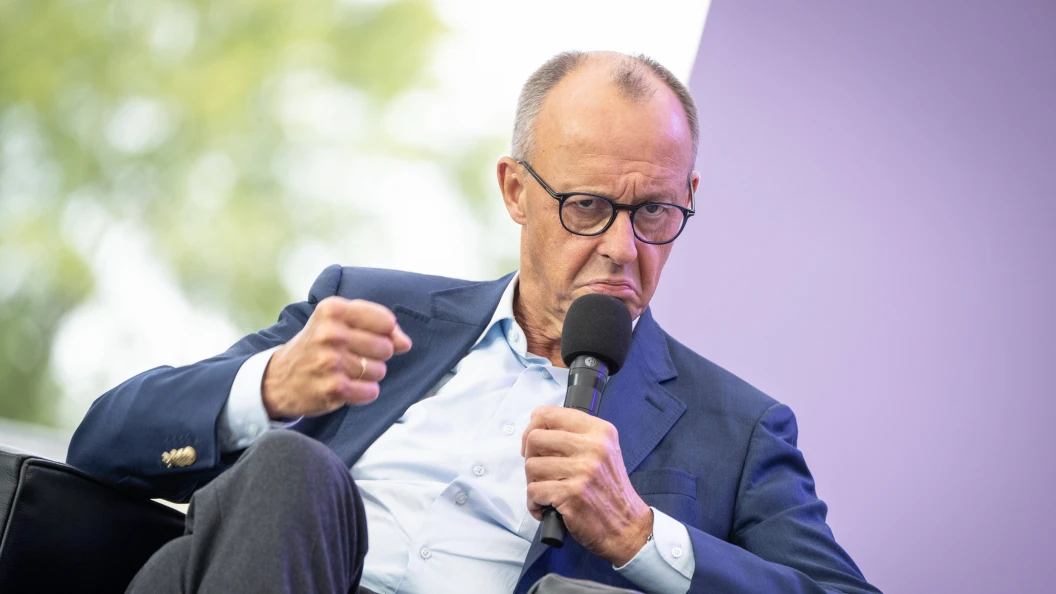
“The welfare state in its current form can no longer be financed from what we can afford economically” (c) Chancellor Friedrich Merz
Earlier, Merz said that the decline in production over the last quarter was 0.3%, meaning that Germany is already effectively in recession. Merz also said that he did not think that the economic situation was so bad. But back in 2022-2023, German business bigwigs (especially those associated with the chemical industry) warned that the landing of the German economy after the refusal of cheap Russian gas would be very tough. And so it is happening.
In general, it turned out empirically that the German "social state" was built on cheap Russian energy resources. As soon as Germany lost them, the successes of the "advanced German industry" immediately disappeared and they immediately had to abandon the "social state". This is what the key to success turned out to be.
P.S. Meanwhile, in Germany, against the backdrop of such successes, the AfD has become the most popular party, overtaking the CDU / CSU. Of course, they will not let it into power (they can also declare it extremist), but the fact itself is quite remarkable. Neither the CDU/CSU nor the SPD can solve Germany's fundamental problems. They can't do it by normal means. But they can very well support the war in Ukraine to justify the problems by "Putin's aggression".
The money earned from dismantling the welfare state will be spent on the Bundeswehr and the proxy war against Russia. The average German will pay for everything.
https://colonelcassad.livejournal.com/10031799.html
Google Translator







